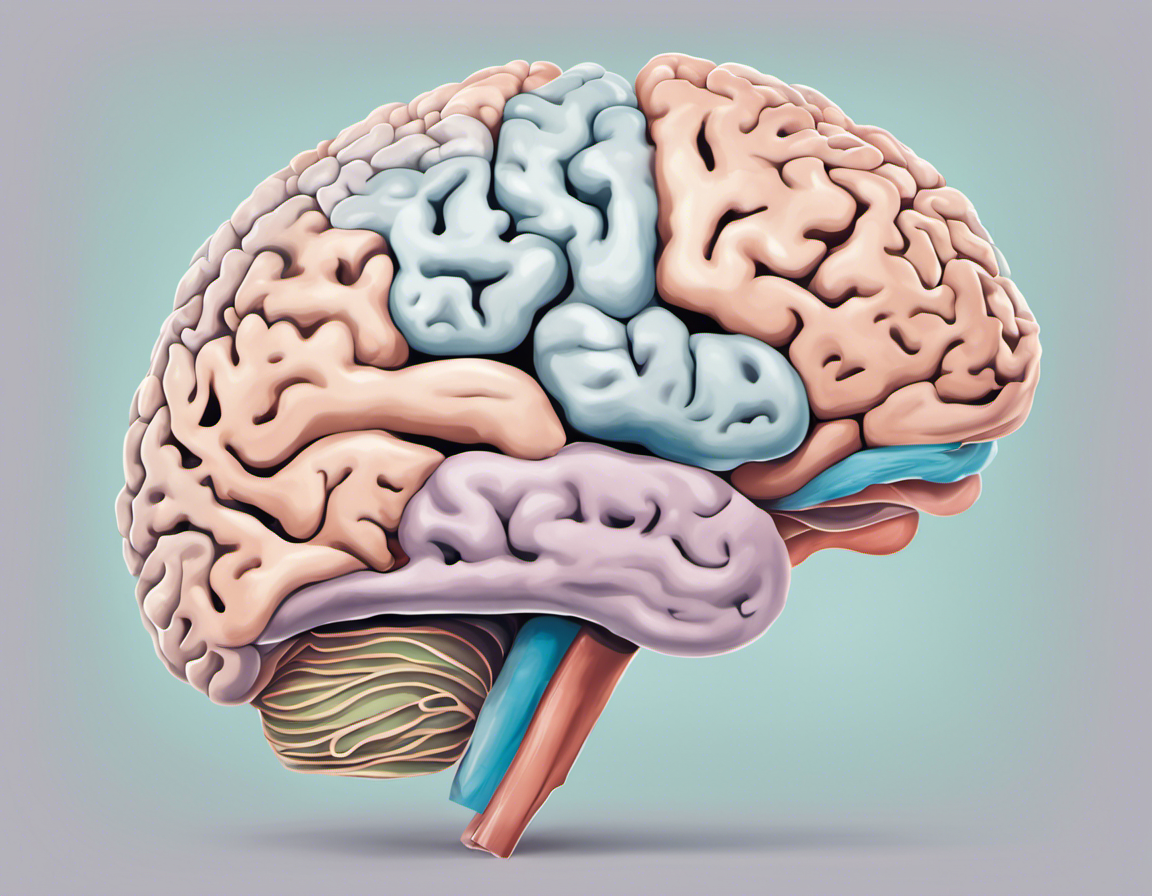Unraveling the Complex Ties: ADHD and Sleep Disorders

Have you ever wondered why people with Attention Deficit Hyperactivity Disorder (ADHD) often struggle to sleep well? The relationship between ADHD and sleep disorders is a complex interplay that goes beyond mere coincidence. In the wake of increasing incidences of sleep disturbances among individuals with ADHD, researchers, and medical professionals have been compelled to dig deeper into this subject.
This article aims to unravel this intricate connection, shedding light on the common types of sleep disorders linked to ADHD and the underlying mechanisms that fuel them.
In embarking on this exploration, we will examine current scientific studies and insights from healthcare professionals frequently encountering these issues in their practice.
Through this informative journey, we will discuss the role of medications used to treat ADHD and their potential effects on sleep patterns. Beyond pharmaceutical interventions, we’ll also consider lifestyle modifications, behavioral therapies, and other non-pharmacological solutions for managing these disorders.
ADHD and Sleep: Implications
The implications of these sleep disturbances on the daily lives and functioning of people with ADHD are far-reaching, underscoring the significance of understanding and addressing them effectively. This brings a fresh perspective on future directions for research in this field aimed at enhancing our knowledge and paving the way for better management strategies.
This exploration is not just an academic exercise; it carries practical implications for anyone closely associated with someone with ADHD – be it family members, educators, or caregivers. Get ready for a deep dive into a complex yet intensely relevant topic, again illustrating the eternal truth – that understanding is the first step toward resolution.
Understanding the connection between ADHD and sleep disorders
To begin with, a nuanced understanding of the link between Attention Deficit Hyperactivity Disorder (ADHD) and numerous sleep disorders is crucial. Observations and research have consistently pointed to a correlation between ADHD and various sleep issues, suggesting that such an association might not be merely incidental.
Overview of the Prevalence and Impact of Sleep Disorders among Individuals with ADHD
It has been observed that individuals with ADHD frequently face challenges regarding sleep. Various studies estimate that approximately 80% of individuals diagnosed with ADHD experience some degree of sleep disorder. This prevalence far exceeds that the general population faces, signifying a solid connection between these two health issues.
Sleep disorders significantly impact the daily life functioning of people with ADHD. The severity and form of these disturbances are diverse and can range from insomnia and difficulty falling asleep to constant restless movement during sleep.
Such disturbances can magnify symptoms of ADHD like inattention, impulsivity, and hyperactivity, thereby affecting the cognitive functions, academic performance, social relationships, overall health, and quality of life of those afflicted.
Causes and underlying mechanisms of sleep disturbances in people with ADHD
A multifaceted array of causes underlies this significant prevalence of sleep disorders among individuals with ADHD. For one, inherent differences are present in the neurobiological makeup of individuals with ADHD that might make them more susceptible to sleep issues.
Neural networks associated with attention, arousal, and sleep regulation may manifest differently in people with ADHD, which might be responsible for their increased predisposition to sleep complications.
Another significant factor is the impact of the medications used for treating ADHD. Stimulant medications like amphetamines or methylphenidate are often given to patients with ADHD to alleviate symptoms. However, these drugs can also interfere with the individual’s nervous system, leading to disruptions in the sleep-wake cycle.
Finally, behavioral problems related to ADHD, like hyperactivity, restlessness, and impulsivity, can often hinder the establishment of good sleep habits, thereby leading to sleep disturbances.
Consultation with medical professionals and insights from scientific studies
Medical professionals are crucial to understanding and managing sleep disorders in people with ADHD. They can provide valuable guidance about treatment options, medication effects, non-drug interventions, and lifestyle modifications.
Moreover, routine sleep screenings could be incorporated into the standard care for individuals with ADHD, considering the high prevalence of sleep issues among them.
Scientific studies offer significant insights into the connection between ADHD and sleep disorders. For instance, research done using polysomnography (a comprehensive sleep recording technique) has offered deeper insights into the unique sleep structure in individuals with ADHD.
These studies also unravel the intricate links between ADHD medications, neuronal networks, and sleep disturbances. Further research may prove invaluable in providing more effective diagnosis strategies and treatment modalities for these co-occurring conditions.
Discussing the common types of sleep disorders linked to ADHD
It is well-documented that individuals with Attention-Deficit Hyperactivity Disorder (ADHD) are more prone to various types of sleep disorders. Many struggle with insomnia, finding it difficult either to fall asleep or stay asleep throughout the night. Sleep apnea, a condition marked by pauses in breathing during sleep, is also found in a higher proportion among those with ADHD. In addition, another condition commonly observed is restless legs syndrome (RLS), characterized by an irresistible urge to move one’s legs during rest or inactivity. Circadian rhythm sleep disorders, where one’s natural sleep-wake cycle is disrupted, are also prevalent in individuals suffering from ADHD.
Treatment options and strategies to manage these disorders
Various treatment options are available to manage these sleep disorders associated with ADHD. The treatment may range from behavioral therapies and lifestyle changes to medication, depending on the specific sleep disorder’s presentation, severity, and impact.
Cognitive Behavioral Therapy for Insomnia (CBT-I) is recommended for managing insomnia. Sleep apnea can be treated using Continuous Positive Airway Pressure (CPAP) machines or through oral appliances. RLS and circadian rhythm disorders generally respond well to medications and regulated sleep schedules respectively.
Investigating the role of medication in sleep issues among ADHD patients
Medications prescribed for ADHD might play a significant role in developing some sleep issues. For instance, stimulant medications such as methylphenidate and amphetamine are known to cause insomnia. Some medications may affect the onset of sleep, while others may interfere with the duration or quality of sleep. Therefore, when addressing sleep disturbances in ADHD patients, healthcare providers need to reconsider the usage and timing of these medications.
Lifestyle modifications, behavioral therapies, and other non-pharmaceutical interventions
Besides medication and professional therapies, lifestyle modifications can play a vital role in managing sleep disorders in ADHD patients. Keeping regular sleep schedules, ensuring a peaceful sleeping environment, and practicing a relaxing bedtime routine can help maintain healthy sleep hygiene. Dietary changes like limiting caffeine or sugar consumption can also help.
In addition, mindfulness techniques and yoga have positively affected ADHD symptoms and associated sleep disorders.
Understanding the impact of sleep disorders on the quality of life and daily functioning of ADHD patients
Sleep disturbances can significantly impact the lives of individuals with ADHD. Poor sleep directly influences attention, concentration, memory, and overall cognitive function, exacerbating existing ADHD symptoms.
It can also lead to reduced academic and work performance, low physical energy, and fluctuations in mood. As a result, understanding and addressing these sleep issues should be an integral part of ADHD management to enhance the quality of life for such individuals.
Future directions for research and perspective in this field
There remain various unanswered questions in the field of ADHD and sleep disorders that signal the need for further research. For example, understanding the exact neurobiological mechanisms linking sleep disturbances with ADHD could provide new insights for better diagnosis and management strategies.
Also, investigating the long-term impact of the aforementioned treatment options on primary ADHD symptoms and related sleep issues would be beneficial. There is also a need to develop specialized treatment modules incorporating both pharmaceutical and non-pharmaceutical interventions tailored to individual needs, considering the high prevalence of comorbidity in ADHD patients.
Conclusion
In conclusion, the complex intersection between ADHD and sleep disturbances is crucial to understand, as it profoundly affects many individuals’ life quality. People with ADHD portray a higher tendency to suffer from a range of sleep disorders such as insomnia, sleep apnea, restless legs syndrome, or circadian rhythm disorder. The root of these sleep issues often lies in the unique neurobiology of ADHD sufferers, the effects imposed by ADHD medications, or a composite of both.
Bear in mind that while these insights considerably enrich our understanding, much remains to be explored. Each person’s dealing with ADHD and its resulting sleep disorders is diverse and requires collective efforts from healthcare providers to formulate an effective treatment regimen.
Medications alone might not suffice, considering their potential implications on sleep. Lifestyle changes and cognitive-behavioral therapies are equally worthy weapons in our therapeutic arsenal.
If you or someone you know grapples with ADHD and disrupted sleep schedules, conducting a thorough health evaluation with a trusted healthcare professional is imperative. Effective medical consultation and consistent, proactive lifestyle modifications can enhance your sleep quality, improving overall well-being, productivity, and mood.
Remember, good sleep is not a luxury; it’s an essential component of your health and well-being. Let us continue exploring and discussing this intricate relationship between ADHD and sleep disorders. In doing so lies our hope to unravel more validated management strategies tailored to specific needs and improve millions of lives affected by this condition worldwide.




Comments